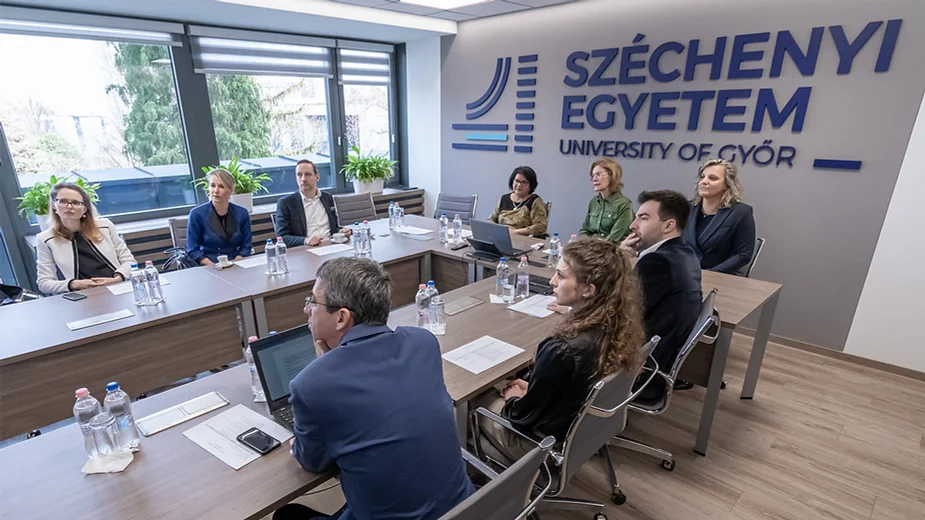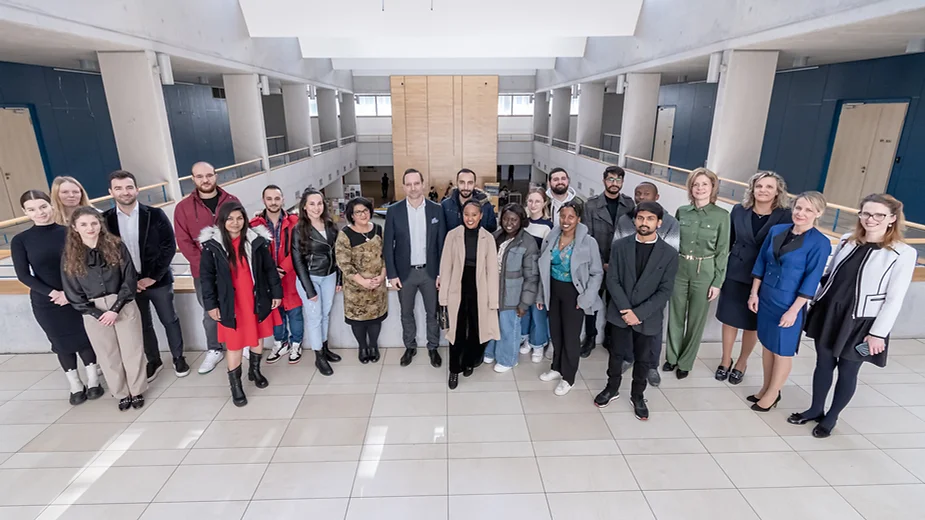on Christian scholarships
The Scholarship Programme for Christian Young People is very important for Széchenyi István University, where almost twenty students are studying under this programme, said Tristan Azbej, State Secretary responsible for programmes to help persecuted Christians, at a meeting with representatives of the institution.
For Christian communities living in a minority in their homeland, it is vital that young generations receive a quality higher education if they are to succeed in their homeland.
In 2017, Hungary launched a scholarship programme for them, which is an integral part of the Hungary Helps humanitarian programme in Hungary. Széchenyi István University is also participating in this programme. This was the occasion for the visit of Tristan Azbej, State Secretary responsible for programmes to help persecuted Christians
At the meeting, Dr Eszter Lukács, Vice President for International Affairs and Strategic Relations, presented a number of facts and figures on the development of the university. She said that the national higher education scholarship programmes are a great help in internationalising the institution, and that there are now also self-financed students on the 42 English-language programmes. In addition, dual courses in several disciplines have been launched with partners in the United States, China, Portugal, India and Italy. The number of international students has grown significantly in just a few years to nearly 1,000, representing almost 80 countries from all over the world. The Vice President pointed out that Széchenyi University is ranked in six world rankings by Quacquarelli Symonds (QS) and Times Higher Education (THE).
The Győr Innovation Park is one of the spectacular elements of the university’s development, and its head, Tamás Kolossváry, underlined that the first building was inaugurated last year, and the development will be completed in two phases in the next few years. He added that the park will mainly house the institution’s research and development units and corporate partners linked to cutting-edge technologies, and that this linkage will strengthen the creation of start-ups and spinoffs and the birth of innovations.

Sylvia Páliné Nyiri, staff member of the University’s International Programmes and Alumni Centre, explained that 19 students are currently studying at the institution under the Scholarship Programme for Young Christians. Most of them come from Syria, Pakistan and Kenya, but there are also students from Lebanon and Nigeria.
In recent years, almost 20 people have graduated and 11 are expected to graduate this academic year. The expert stressed that there are also programmes to support the young Christian scholarship holders, who can regularly participate in English-language church services, religious events and Bible study, while tea parties and quizzes are also a way of relaxing. She mentioned the activities through which the students help the people living in the temporary home of the Győr Child Protection Centre.
„I can only congratulate the university on its activities and development, which is a real driving force for Győr. It is also clear that for the institution, the Scholarship Programme for Young Christians is not just a matter of educational organisation, but also has an important spiritual content. In fact, we are also greatly enriched by having these fantastic, witness-driven young people here, who are also ready to become the leading intellectuals of the future for their communities in difficult circumstances. Their presence in our country and on our campus is a blessing.”– said State Secretary Azbej Tristan. He added that the further development of the programme would be helped by strengthening links between universities, and by launching exchange programmes for teachers, researchers and students. He said that the inclusion of Hungarian language learning in the training programmes should be considered. He also pointed out that in certain regions there is a great need for vocational training in health care and medical technology, and in the Western Balkans, for example, there is also a great demand for vocational training in the automotive industry, where Hungarian universities can also provide assistance.

State Secretary Tristan Azbej (tenth from left) also met with staff of Széchenyi István University and international students on the Győr campus (Photo: András Adorján)






